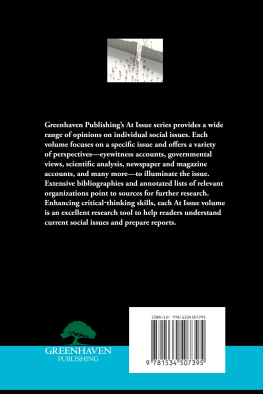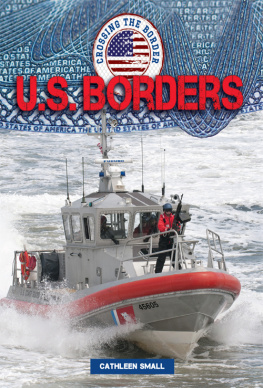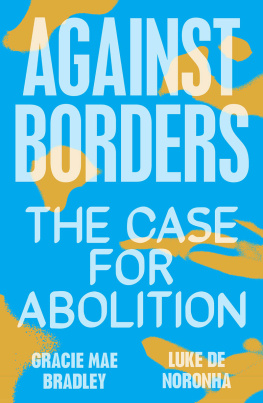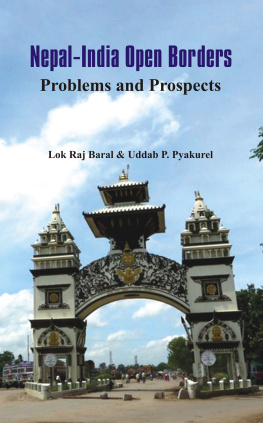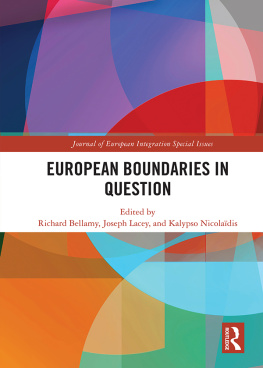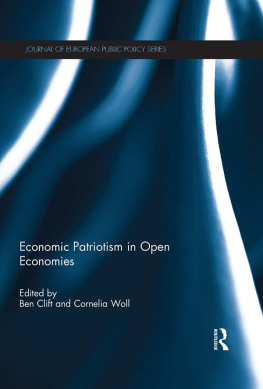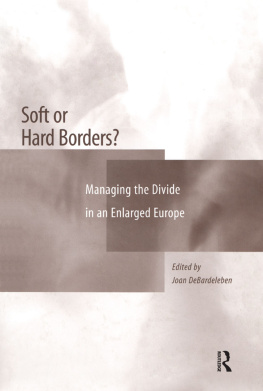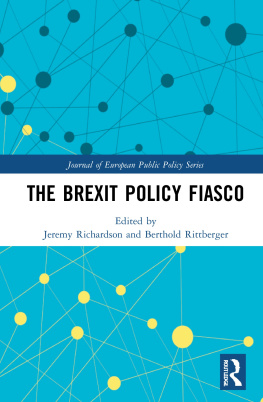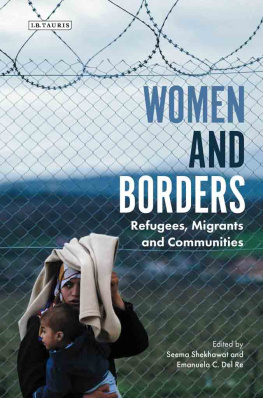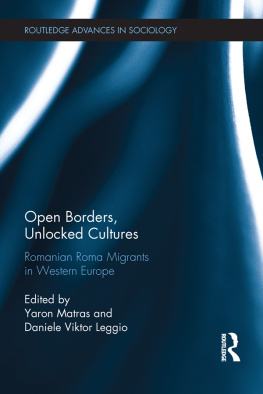
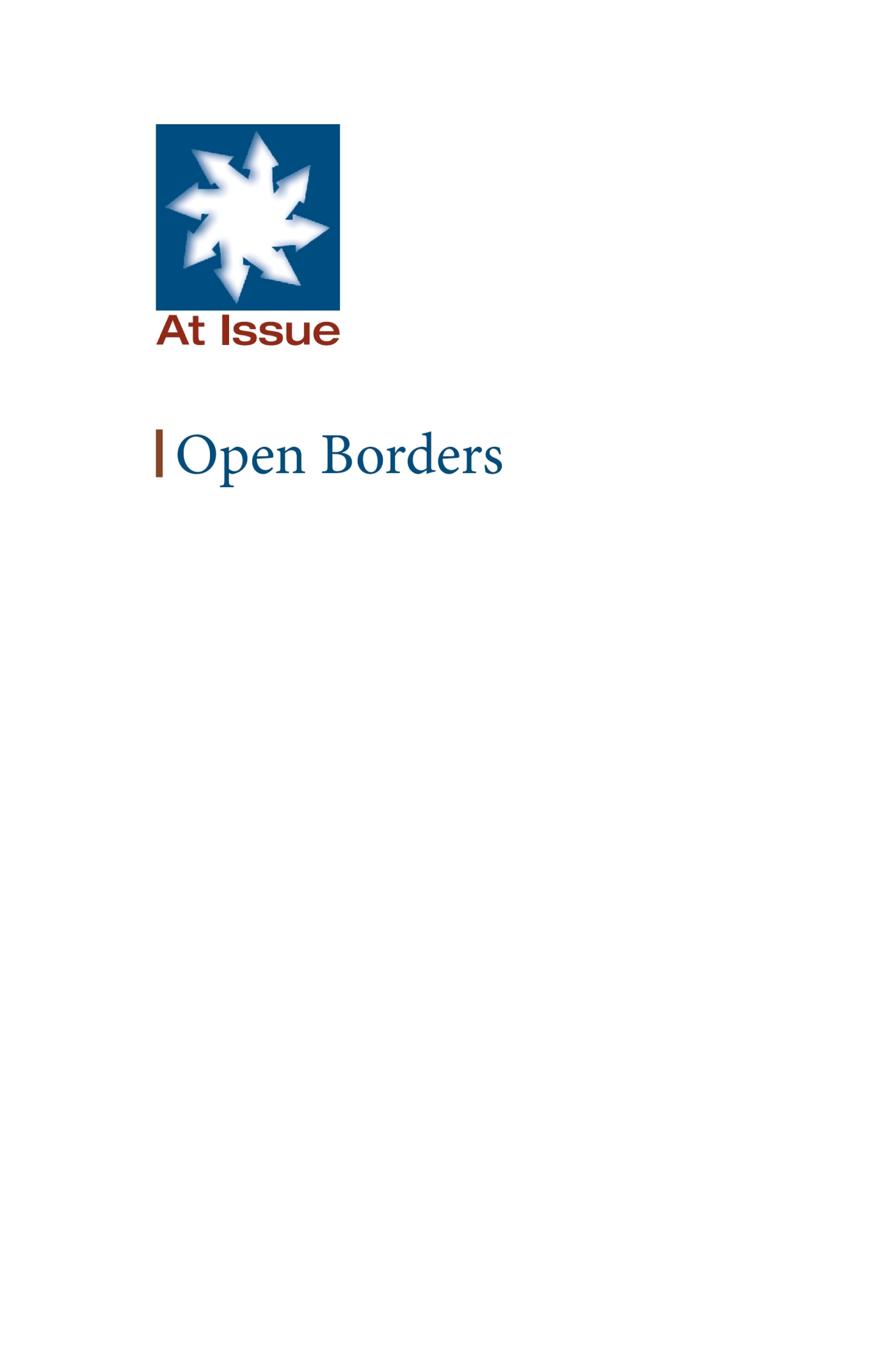
Other Books in the At Issue Series
Athlete Activism
Food Security
Genocide
Mob Rule or the Wisdom of the Crowd?
Money Laundering
Nuclear Anxiety
Pandemics and Outbreaks
Sexual Consent
Student Debt
Universal Health Care
Vaccination
Published in 2021 by Greenhaven Publishing, LLC
353 3rd Avenue, Suite 255, New York, NY 10010
Copyright 2021 by Greenhaven Publishing, LLC
First Edition
All rights reserved. No part of this book may be reproduced in any form without permission in writing from the publisher, except by a reviewer.
Articles in Greenhaven Publishing anthologies are often edited for length to meet page requirements. In addition, original titles of these works are changed to clearly present the main thesis and to explicitly indicate the authors opinion. Every effort is made to ensure that Greenhaven Publishing accurately reflects the original intent of the authors. Every effort has been made to trace the owners of the copyrighted material.
Cover image: gualtiero boffi/Shutterstock.com
Library of Congress Cataloging-in-Publication Data
Names: Karpan, Andrew, editor.
Title: Open borders / Andrew Karpan, book editor.
Other titles: Open borders (Greenhaven Publishing)
Description: New York: Greenhaven Publishing, 2021. | Series: At issue | Includes bibliographical references and index. | Audience: Grades 9-12.
Identifiers: LCCN 2019060163 | ISBN 9781534507395 (library binding) | ISBN 9781534507388 (paperback)
Subjects: LCSH: Emigration and immigration--Social aspects--Juvenile literature. | Emigration and immigration--Economic aspects--Juvenile literature. | Emigration and immigration--Government policy--Juvenile literature. | Freedom of movement--Juvenile literature.
Classification: LCC JV6225 .0638 2021 | DDC 304.8--dc23
LC record available at https://lccn.loc.gov/2019060163
Manufactured in the United States of America
Website: http://greenhavenpublishing.com
Contents
Julie Grant
Kerry Dimmer
Terence Corrigan
David Olusoga
Jason Hickel
Nicole Alzapiedi
Peter Beaumont
Jacob G. Hornberger
John Torpey
Paul Ormerod
Nick Srnicek
Anna Maria Mayda and Giovanni Peri
Guy Aitchison
Vasco Pedrina
Kevin Shih
Mary Jo Dudley
Aisha Dodwell
Jane Freedman
Aleksej Heinze
Karen Bravo
Introduction
T he Trump administrations policy of cracking down on illegal immigration at the Mexican-American border (beginning in 2016) may well be one of the last gasps of nationalism in American politics. The superseding force of global economics has made border patrol feel like a vestige of the past when applied to goods and services, and the idea that the free movement of people may soon follow in its wake has come to seem less like a utopian dream and more like an inevitibility.
In simple terms, open borders are those that allow people to move freely between countries with limited restriction and border control. The current concept of open borders was a creation of the post-war era. It was signified by the creation of institutions like the United Nationswhich was created in 1945 following the Second World War partially to hash out agreements promising that borders around the world would be open to refugeesand the World Trade Organization, which was created in 1995 following the end of the Cold War and committed itself to opening those same borders to trade. On the relatively local level, agreements like the Schengen Agreement in 1985 and the North American Free Trade agreement in 1994 created common zones of trade and travel among some of the worlds biggest economies. These moments were revolutionary. In Western Europe, the Schengen Agreement removed impediments to travel between countries that had been engulfed in territorial military conflict less than half a century earlier. In North America, the free trade agreement created a shared economic zone that remains one of the largest in the world.
More recent immigration politics have shown the strain of adjusting what remains of century-old political systems and cultural institutions to the new globalized economy and culture rushing to replace them. The US-Mexican border had been born out of violence, created by the Treaty of Hidalgo (1848) that ended With the conditions of these detainment centers brought to light, debate over the ethics and practicalities of border patrol was reinvigorated.
Political events in other parts of the world followed the same logic, including the 2016 Brexit referendum in the UK, the ongoing conflict between India and Pakistan over the Kashmir region, and the anti-European Union sentiments animating the yellow vest movement in Paris. However, the material conditions of borders stayed the same regardless of their role in the political imagination. Refugees from the Syrian Civil War, which lasted through much of the 2010s, would stay in camps in and around cities of Western Europe, but little else would change. When one country closes its borders to refugees, these displaced individuals must simply find somewhere else to go. What these events indicated was that despite the particularities of the circumstances, they are all part of a larger global trend, and consequently must be solved on an international scale. Even a movement like the 2018 yellow vests protests in Paris, which ostensibly targeted a new tax leveled by the Macron administration, would not occur without, as Jon Henley noted in the Guardian, multiplying internationally, from Belgium to Bulgaria, Serbia to Sweden and Israel to Iraq.
In many cases, the concerns are fundamentally economic. A world with open borders is a world that would, on some level, have to share the same labor laws and handle shared costs. Large companies were the first to take advantage of those new conditions in the form of multinational corporations, and their global workforces were the first to feel that change. With industry moving to other countries through the process of globalization, the economy of the United Statesonce among the worlds centers of industrial productionsuddenly became a service economy endlessly providing for the wealth it had concentrated. In this sense, while a more globalized economy tends to clearly benefit corporations, the effect it has on countries tends to be more complicated.
Another complication is that a world with free movement can also create populations left without countries to call home. The UNs High Commissioner for Refugees estimates that nearly 25.9 million people as of mid-2019 had been forced to flee their countries of origin. These refugees leave behind their countries for a number of reasons, ranging from war, to religious or political persecution, to climate disasters. As a result, they wade between borders indefinitely through a trans-national network of refugee settlements.
Elsewhere, an even larger number of people make these journeys temporarily as tourists. Per the UNs World Tourism Organization, some 1.4 billion people more than the population of any single countrytraveled internationally in 2018. Once a luxurious privilege of the statistically insignificant wealthy class, the tourist is now a ubiquitous presence, and borders are constantly relaxing to accommodate their transit. Tourism offers economic opportunities and the potential for greater understanding between people from around the world, but the question of who should have the privilege of crossing borders with limited scrutiny while others are restricted from freely moving between countries is a source of controversy.
Next page
